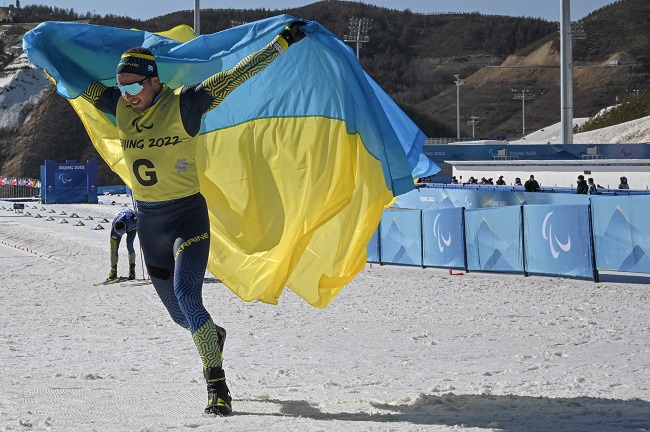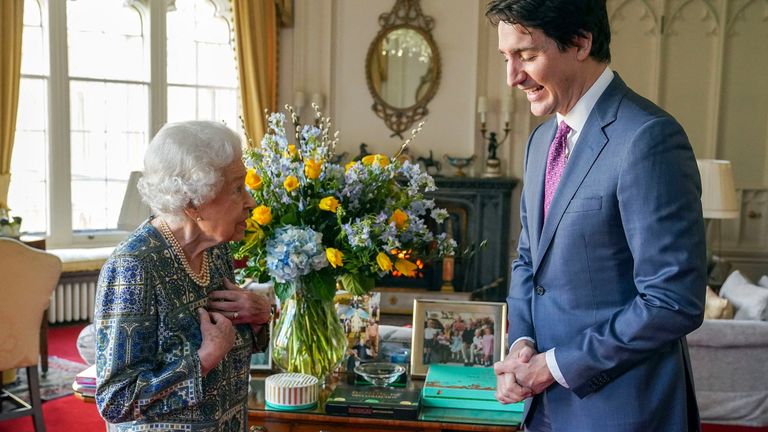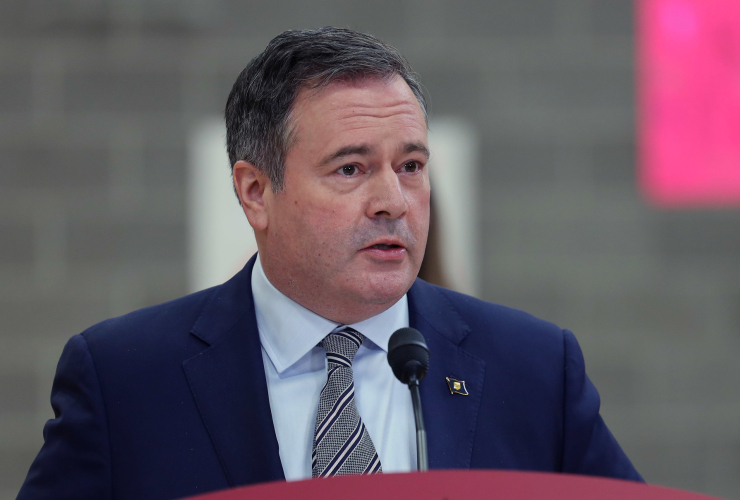
People walk past the Maximo Gorki Cultural Centre in San Javier,
Uruguay on March 2, 2022

The Na Zdorovie restaurant and hotel is seen in San Javier, Uruguay on March 1, 2022, where the village's Russian roots are visible in the business's name
(AFP/Eitan ABRAMOVICH)

Russian descendant Alejandro Sabelin poses at his house

Russian descendant Alejandro Sabelin poses at his house
in San Javier, Rio Negro department, Uruguay on March 2, 2022
(AFP/Eitan ABRAMOVICH)

Russian descendant Alejandro Sabelin shows the passport of his grandfather at his house in San Javier, Uruguay

Russian descendant Alejandro Sabelin shows the passport of his grandfather at his house in San Javier, Uruguay
(AFP/Eitan ABRAMOVICH)

The Na Zdorovie restaurant and hotel is seen in San Javier, Uruguay on March 1, 2022, where the village's Russian roots are visible in the business's name
(AFP/Eitan ABRAMOVICH)

A girl poses with traditional Russian nesting dolls, called matryoshkas, at the Libertad square in San Javier, Uruguay, on March 1, 2022

A girl poses with traditional Russian nesting dolls, called matryoshkas, at the Libertad square in San Javier, Uruguay, on March 1, 2022
(AFP/Eitan ABRAMOVICH)

Aerial view of San Javier, Rio Negro department, Uruguay, on March 2, 2022 (AFP/Ivan PISARENKO)
Jordane BERTRAND
Mon, 7 March 2022
Far away from Kyiv and even further from Moscow, residents of the small Uruguayan village of San Javier -- an old Russian settlement -- look on with dismay at the invasion of Ukraine.
At a first glance, the community's grid plan, low houses and surrounding fields resembles any other rural Uruguayan village -- but a scratch below the surface reveals the history of a site founded more than a century ago by Russian peasants.
Although few of their descendants speak Russian or even carry Russian names, the inhabitants here insist they are "proud" of their Slavic heritage, while also firmly denouncing the motherland's invasion of Ukraine.
San Javier has several Cyrillic inscriptions on display, a "Maximo Gorki" cultural center and five giant matryoshka dolls on the central square.
It all points to a history that is "unique in Uruguay and South America," says Leonardo Martinez, the deputy mayor of the village of 1,800 people.
San Javier's story began in 1913 when 300 families -- originally from Russia's western Voronezh region and followers of the "New Israel" Christian sect that was persecuted by Tsarist Russia -- arrived in Montevideo.
A few months later, around 600 people settled in San Javier, a five-hour drive northwest of Montevideo and flanked by the Uruguay River.
It was the largest autonomous Russian agricultural colony in South America, and quickly became a roaring success.
A century later, the sunflower -- which the colonists introduced to Uruguay -- appears everywhere as the village symbol.
"Looking at photos we feel a bit nostalgic... for the great sacrifice they made," said Martinez, 43, the great-grandson of an original settler.
The mayoral office claims a "high percentage" of the current inhabitants descend from the Russian colonizers, although over time the village has seen a blending of people and cultures, like the country as a whole.
The local restaurant offers the typical Uruguayan grilled meat "asado" as well as "shashlik," a type of lemon-seasoned skewered meat popular across much of the former Soviet Union.
The village square hosts Uruguayan creole folk dances as well as traditional Russian ones.
- Killing 'brothers' -
The village, which has its own museum, has become a tourist site for its Russian history.
But despite those ties, not a single flag or banner proclaiming partisanship can be found in its streets.
"I've not seen explicit support in San Javier" for either country, said Martinez about the war between Russia and Ukraine more than 10,000 kilometers (6,200 miles) away.
"We're against the war, that's obvious," he said. "Against all armed conflict."
Leonardo Lorduguin, a 22-year-old San Javier resident, has set up a Facebook page dedicated to his village.
He is fascinated by the Russian language, which he has been learning for two years -- one of the few of his generation to speak it.
But he would not commit to either side in the conflict.
Like many other villagers, he insists that the first settlers came from "Great Russia" -- an old term that includes territories outside the modern Russian borders.
"In 1913, only Russians came but some had Ukrainian names. They came to Montevideo and were told there was a Russian colony in San Javier," said Lorduguin, reeling off the Russian and Ukrainian surnames of some villagers.
Alejandro Sabelin, 80, is one of the only other villagers who speaks Russian alongside Spanish.
His father was born in San Javier three months after his grandparents arrived there.
He recognizes that the language is being lost in the community. His own children understand Russian better than they speak it.
A picture of his grandparents hangs in his small house.
"I'm really sorry about what is happening because it is almost like killing your brothers," he said of Russia's invasion of its neighbor.
Although he has never visited the homeland of his grandparents, Sabelin says, "I will never stop supporting Russia."
But "the war is awful, what's happening is horrible," he adds.
jb/bc/caw

Aerial view of San Javier, Rio Negro department, Uruguay, on March 2, 2022 (AFP/Ivan PISARENKO)
Jordane BERTRAND
Mon, 7 March 2022
Far away from Kyiv and even further from Moscow, residents of the small Uruguayan village of San Javier -- an old Russian settlement -- look on with dismay at the invasion of Ukraine.
At a first glance, the community's grid plan, low houses and surrounding fields resembles any other rural Uruguayan village -- but a scratch below the surface reveals the history of a site founded more than a century ago by Russian peasants.
Although few of their descendants speak Russian or even carry Russian names, the inhabitants here insist they are "proud" of their Slavic heritage, while also firmly denouncing the motherland's invasion of Ukraine.
San Javier has several Cyrillic inscriptions on display, a "Maximo Gorki" cultural center and five giant matryoshka dolls on the central square.
It all points to a history that is "unique in Uruguay and South America," says Leonardo Martinez, the deputy mayor of the village of 1,800 people.
San Javier's story began in 1913 when 300 families -- originally from Russia's western Voronezh region and followers of the "New Israel" Christian sect that was persecuted by Tsarist Russia -- arrived in Montevideo.
A few months later, around 600 people settled in San Javier, a five-hour drive northwest of Montevideo and flanked by the Uruguay River.
It was the largest autonomous Russian agricultural colony in South America, and quickly became a roaring success.
A century later, the sunflower -- which the colonists introduced to Uruguay -- appears everywhere as the village symbol.
"Looking at photos we feel a bit nostalgic... for the great sacrifice they made," said Martinez, 43, the great-grandson of an original settler.
The mayoral office claims a "high percentage" of the current inhabitants descend from the Russian colonizers, although over time the village has seen a blending of people and cultures, like the country as a whole.
The local restaurant offers the typical Uruguayan grilled meat "asado" as well as "shashlik," a type of lemon-seasoned skewered meat popular across much of the former Soviet Union.
The village square hosts Uruguayan creole folk dances as well as traditional Russian ones.
- Killing 'brothers' -
The village, which has its own museum, has become a tourist site for its Russian history.
But despite those ties, not a single flag or banner proclaiming partisanship can be found in its streets.
"I've not seen explicit support in San Javier" for either country, said Martinez about the war between Russia and Ukraine more than 10,000 kilometers (6,200 miles) away.
"We're against the war, that's obvious," he said. "Against all armed conflict."
Leonardo Lorduguin, a 22-year-old San Javier resident, has set up a Facebook page dedicated to his village.
He is fascinated by the Russian language, which he has been learning for two years -- one of the few of his generation to speak it.
But he would not commit to either side in the conflict.
Like many other villagers, he insists that the first settlers came from "Great Russia" -- an old term that includes territories outside the modern Russian borders.
"In 1913, only Russians came but some had Ukrainian names. They came to Montevideo and were told there was a Russian colony in San Javier," said Lorduguin, reeling off the Russian and Ukrainian surnames of some villagers.
Alejandro Sabelin, 80, is one of the only other villagers who speaks Russian alongside Spanish.
His father was born in San Javier three months after his grandparents arrived there.
He recognizes that the language is being lost in the community. His own children understand Russian better than they speak it.
A picture of his grandparents hangs in his small house.
"I'm really sorry about what is happening because it is almost like killing your brothers," he said of Russia's invasion of its neighbor.
Although he has never visited the homeland of his grandparents, Sabelin says, "I will never stop supporting Russia."
But "the war is awful, what's happening is horrible," he adds.
jb/bc/caw




















